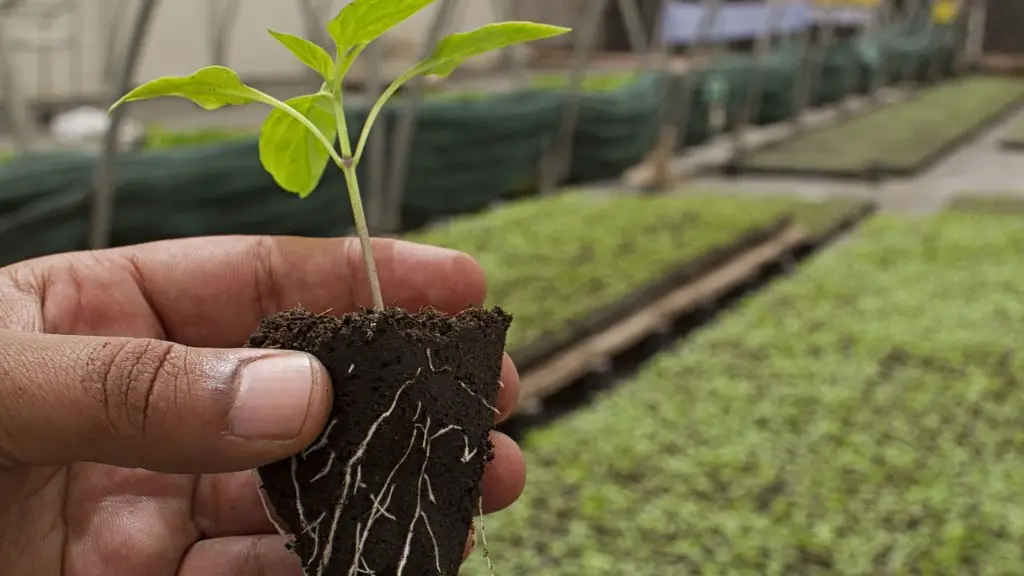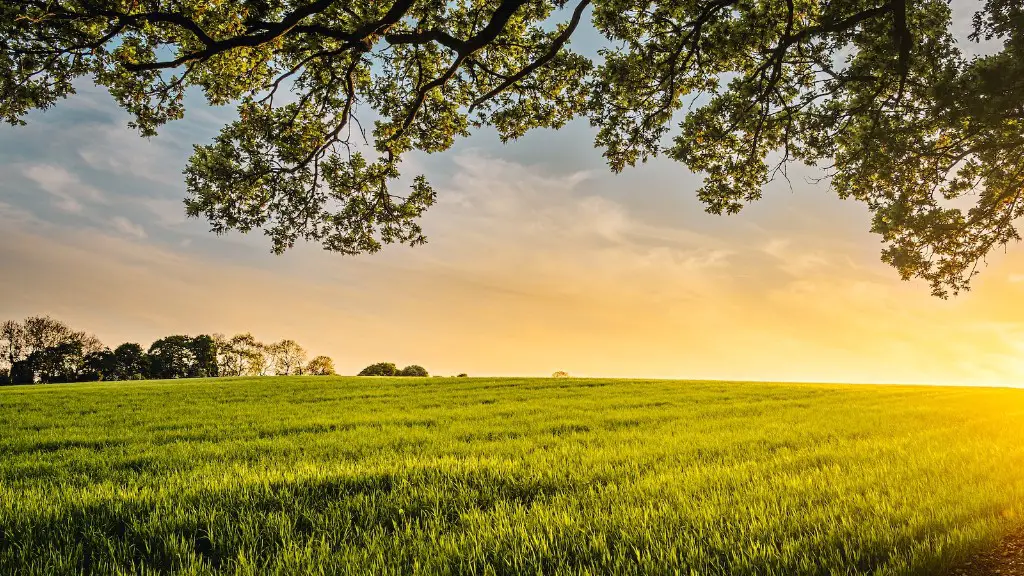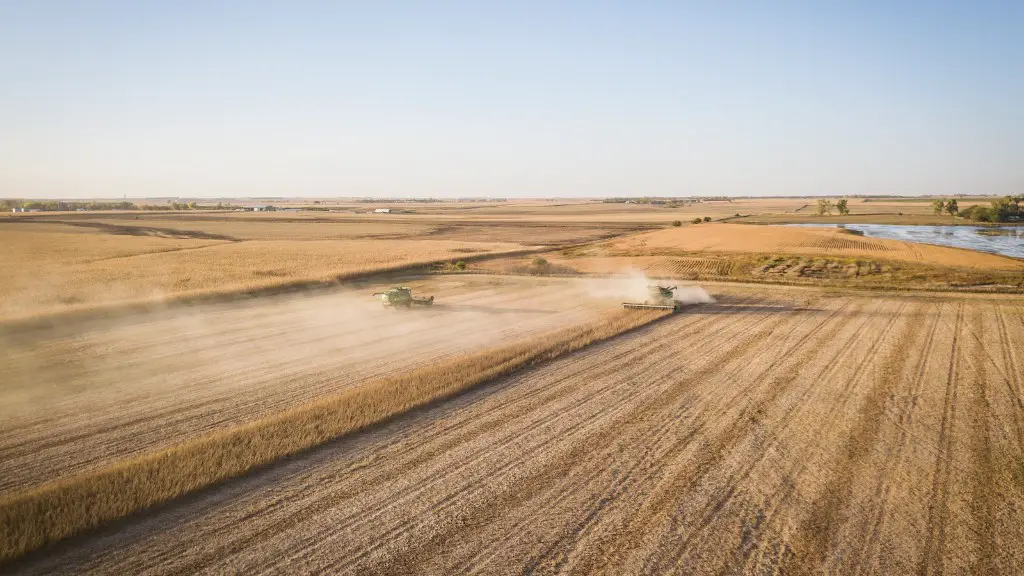Monocropping is an agricultural practice in which farmers focus on cultivating a single crop at any given time. This approach is commonly used in industrialized agriculture and has been used since the start of civilization. Monocropping has a number of advantages and disadvantages when compared to other forms of crop production, and it can have significant impacts on both the environment and the economy.
The primary advantage of monocropping is increased efficiency and productivity. Growing just one crop allows farmers to focus their resources and efforts on that particular crop and make better use of the available land. By simplifying their operations, monocropping reduces both cost and time, which makes it an attractive option for farmers. Additionally, it allows for larger-scale production, which increases profitability.
On the other hand, monocropping comes with a number of disadvantages. One of the biggest problems is soil degradation, due to the continuous planting of a single crop over time. Without nitrogen-fixing crops to replenish the soil, farmers are reliant on synthetic fertilizers and other inputs, which can be costly and polluting. Additionally, monocropping increases vulnerability to disease and pests, which can further reduce yields and require costly pest control measures.
Furthermore, monocropping does not make use of complementary crops, which can effectively improve soil quality and make for more efficient use of resources. Finally, monocropping is often associated with industrial agriculture, which can lead to decreased crop diversity, loss of traditional knowledge, and the exploitation of workers and animals.
Ultimately, when deciding whether to employ monocropping or other forms of crop production, a number of factors must be taken into consideration. While monocropping has a number of advantages and can be effective in certain contexts, it often comes with environmental and economic costs that must be weighed against potential benefits.
Impacts on Soil Quality
Monocropping can lead to the over-cultivation of soil, therefore depleting it in vital nutrients and organic matter, leading to a soil with poorer fertility. This reduces the productivity of the soil, as the nutritional value of the soil is reduced, and crops become more vulnerable to pests and diseases. Furthermore, monocropped soil is also more vulnerable to erosion, as the absence of varied vegetation leaves the soil more susceptible to the runoff of rain water. In addition, monocropping does not allow for crop rotation, meaning that pests and diseases can build up in the soil over time, leading to further soil depletion.
Effect on Crop Diversity
Monocropping has a negative effect on crop diversity, as farmers tend to opt for monocropping as it is more profitable and efficient. This reduces the variety of crops available and increases the reliance upon a select few species, making crops more vulnerable to pests, diseases and other environmental disruptions. In addition, it also means that traditional crops and knowledge of cultivation techniques are being lost and erased, leading to a decreased amount of genetic diversity. This can have a severe impact on global food security, as a decrease in the diversity of crops makes it more difficult to respond to environmental changes, such as climate change.
Ecological Consequences
Monocropping can also cause a number of serious ecological consequences. The simplification of certain ecosystems can reduce the local abundance of wildlife, disrupt the nutrient cycle, and reduce the soil’s ability to absorb, store and recycle water. The decrease in vegetation also leads to increased soil erosion, as there are no longer root systems to keep the soil in place. Furthermore, the increased need for chemical inputs to replenish the soil leads to further soil degradation, as most of these inputs are oil-based and pollute both the soil and the water it is exposed to.
Impacts on Human Communities
Monocropping can also impact the livelihoods of local communities. Monocropping often requires additional inputs and labour, making it a far more costly and labour intensive activity than traditional methods of farming. This can lead to increased poverty in local communities, due to the increased cost of production and the fact that the wages of labourers are often kept low. In addition, monocropping often leads to the exploitation of local farmers, as profits are increasingly concentrated in the hands of the biggest companies, rather than the actual farmers who take on the task of production.
Global Effects
Monocropping can also result in global repercussions. Genetic uniformity, due to monocropping, reduces the diversity of food crops, therefore leading to a decrease in the global food supply. Monocropping also increases the risk of crop failure due to drought, pest infestation, and soil degradation, leading to decreased food security. In addition, monocropping often involves the use of synthetic fertilizers and pesticides, which can have a negative impact on the global environment, leading to pollution, water pollution, and the loss of biodiversity.
Worker Exploitation
Finally, monocropping is often connected to the exploitation of workers. As companies seek to maximize profits, they often employ labour at below average wages, with little to no benefits, such as decent housing, healthcare, or education. This contributes to low wages and poor working conditions, which can significantly decrease the quality of life of workers, leading to poverty and an increase in social inequalities. In addition, monocropping often involves the use of child labour and other illegal forms of exploitation, which further exacerbate the situation.


